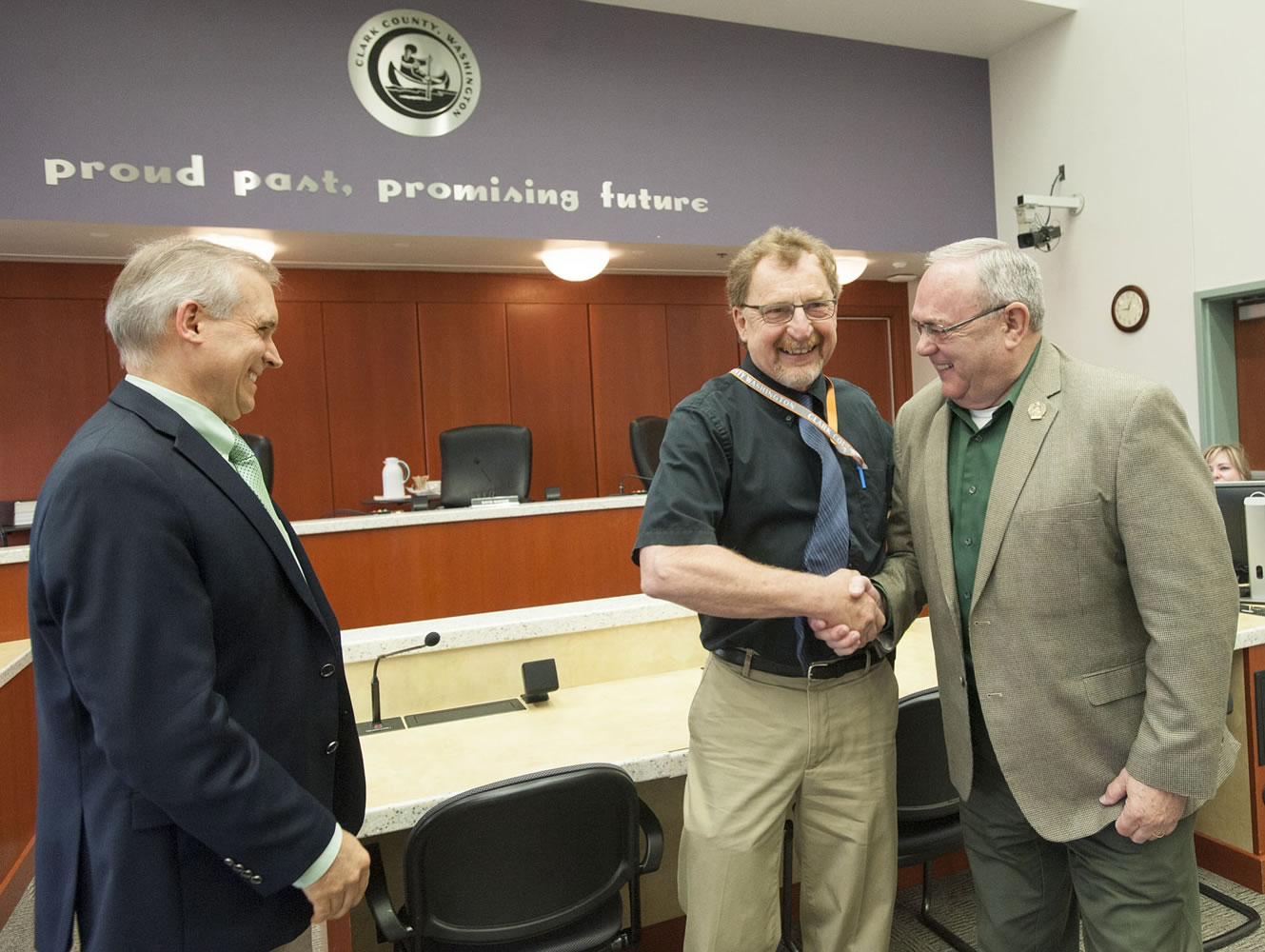When Gary Bickett joined the local health department in 1983, Clark County had numerous landfills, including five public landfills. The metro area ranked No. 3 in the number of busted meth labs, behind only Los Angeles and Houston. And the county had just one person who inspected restaurants and ensured food safety.
Today, Clark County’s municipal landfills have been decommissioned for decades, replaced by state landfills. The meth labs that were once prolific have dropped dramatically in number with one of the main ingredients, pseudoephedrine, behind the pharmacy counter. And the county’s food safety program now has eight full-time employees who perform more than 3,000 restaurant inspections every year.
Bickett has had his hand in all of those during his three decades with the health department, which includes the last 10 years as the food safety and solid waste program manager.
But on Tuesday, Bickett, 66, will leave his position at Clark County Public Health and experience a new change: retirement.
“I didn’t look forward to it,” Bickett said. “Retirement means you’re old.”
Bickett’s first job in public health was in Pierre, S.D. — halfway across the state from the small farming community of Oldham, where he grew up. After four years there, he moved to Colorado and worked for a health department there for a few years. Then, in 1981, Bickett and his wife, Muriel, moved to Portland.
“I always wanted to move to the Northwest,” he said.
Bickett couldn’t find a public health job right away, so he went to work for a solar company.
Two years later, however, a position opened up at what was then the Southwest Washington Health District, a three-county health district consisting of Clark, Klickitat and Skamania counties. Bickett got the job and spent half of his time working in solid waste enforcement — which included hazardous waste and participating in meth lab busts — and half of his time in food safety.
In the late 1980s and early 1990s, Bickett devoted much of his time to landfills.
In 1989, the state made significant changes to landfill requirements. The changes put many landfills across the state, including most in Clark County, out of compliance — and made getting into compliance expensive, Bickett said.
Municipal health officials across the state grappled with how to handle the changes. Finally, Tidewater barge lines developed a plan to construct a transfer station and transport local trash to the Finley Buttes Landfill in Boardman, Ore. — marking the end of local municipal landfills.
During those years, Bickett also helped Klickitat County to design and construct the Roosevelt Regional Landfill — the largest landfill in the state.
Bickett also took a lead role in the decommissioning of a private landfill that sparked impassioned arguments from neighbors who wanted to see it closed and businesses that wanted to take over the site and keep it open.
County Councilor Jeanne Stewart, who was then a member of the county’s Solid Waste Advisory Commission, said Bickett did the right thing for the benefit of public health.
“He stood up to the most enormous political pressure, financial pressures and knew what his job was and knew what his purpose was and what his role was,” Stewart said during a recent board of health meeting.
“I’ll remember him and the work he did forever,” she added.
While overseeing the county’s food safety program, Bickett pushed for an emphasis on education rather than enforcement. Health officials hold initial inspections with establishment employees to emphasize hand washing, bare-hand contact with prepared foods and ill workers — the leading causes of foodborne illness.
The goal, Bickett said, is to ensure food establishments are following guidelines to keep the public safe not punish new restaurants whose employees may not know they’re doing something wrong.
The shift in food safety emphasis, the solid waste work and public health’s increased focus on chronic disease prevention, rather than just communicable diseases, are all areas of pride for Bickett.
He said he hopes to see more public health emphasis on climate change and oceanic affects in the future and would like to see more diversion of food waste from landfills.
In retirement, Bickett hopes to spend time volunteering — he and his wife recently got involved with a local food bank — and getting involved with causes close to his heart, such as climate change and Hanford Site cleanup.
He also wants to devote time to hobbies he hasn’t had time for.
“I have home projects that haven’t been finished, trails that haven’t been hiked, roads that haven’t been ridden and lakes that haven’t been fished,” he said.
And he’ll leave Clark County Public Health with nothing but praise.
“I think the world of this community,” Bickett said. “And I think the world of this health department.”




